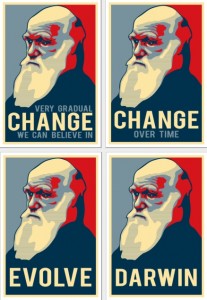 The New York Times seems to be catching up to me, first with an interview of Alvin Plantinga by Gary Cutting in The Stone on February 9th, and then with notes on Bostrom’s Simulation Hypothesis in the Sunday Times.
The New York Times seems to be catching up to me, first with an interview of Alvin Plantinga by Gary Cutting in The Stone on February 9th, and then with notes on Bostrom’s Simulation Hypothesis in the Sunday Times.
I didn’t see anything new in the Plantinga interview, but reviewed my previous argument that adaptive fidelity combined with adaptive plasticity must raise the probability of rationality at a rate that is much greater than the contributions that would be “deceptive” or even mildly cognitively or perceptually biased. Worth reading is Branden Fitelsen and Eliot Sober’s very detailed analysis of Plantinga’s Evolutionary Argument Against Naturalism (EAAN), here. Most interesting are the beginning paragraphs of Section 3, which I reproduce here because it is a critical addition that should surprise no one but often does:
… Read the restAlthough Plantinga’s arguments don’t work, he has raised a question that needs to be answered by people who believe evolutionary theory and who also believe that this theory says that our cognitive abilities are in various ways imperfect. Evolutionary theory does say that a device that is reliable in the environment in which it evolved may be highly unreliable when used in a novel environment. It is perfectly possible that our mental machinery should work well on simple perceptual tasks, but be much less reliable when applied to theoretical matters. We hasten to add that this is possible, not inevitable. It may be that the cognitive procedures that work well in one domain also work well in another; Modus Ponens may be useful for avoiding tigers and for doing quantum physics.
Anyhow, if evolutionary theory does say that our ability to theorize about the world is apt to be rather unreliable, how are evolutionists to apply this point to their own theoretical beliefs, including their belief in evolution?